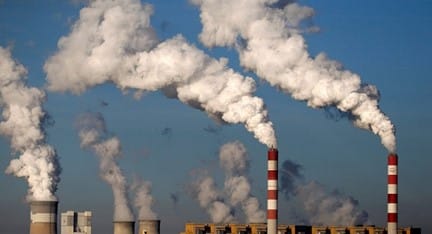
Abu Dhabi
Source: Mufakiru Alemarat
Alittihad Newspaper
Dr. Ali Mohamed Al Khouri
At a time when countries are facing devastating effects of climate change, there is an urgent global need to shift towards “NET ZERO” low carbon economies, a concept that aims to reduce carbon emissions resulting from human activities, and thus reduce the negative impact on the environment. Despite international efforts, such as the “Paris Climate Agreement” signed by 193 countries, in addition to the European Union, to reduce greenhouse gas emissions, and to take ambitious climate measures that keep the temperature rise below 1.5 degrees Celsius, and climate neutrality plans and charters that seek to reach With net zero emissions by 2050, commitments by governments fall far short of hoped-for targets.
This fact prompts us to think about the possible impact of joint cooperation between governments, business communities, and private sector institutions in promoting this global agenda, especially since private sector companies are responsible for nearly 75 percent of global emissions. 553 companies and institutions operating in 70 countries, representing 15 industries, and including major international companies and institutions, have pledged their commitment to reduce their carbon and harmful emissions, and have signed a number of agreements in this regard, but they still collectively represent a third of the global market, which requires attention to the majority of companies and institutions. which has not yet decided on such an undertaking on its part.
This same fact necessitates directing the attention of policy makers to the legislative and regulatory role that can incentivize the private sector to commit to reducing carbon emissions, encouraging renewable energy practices, and investing in low-carbon technologies and processes. Among the important measures that may precede the development of regulatory frameworks for policy makers is conducting a comprehensive study to measure and evaluate carbon emissions at the national level, identifying emissions at the level of different industries and sectors, and then setting clear goals and defining the responsibilities of the various parties. These regulations must clarify the requirements for measurement and disclosure of climate-related risks, and the extent to which institutions achieve targets, which will contribute to enhancing transparency in front of investors, consumers and observers, and directing their decisions.
While the impact of emissions is not limited to the area of national borders, global coordination and joint action are essential for the global transition towards a low-carbon economy and environmental sustainability, and the promotion of public awareness at the level of individuals on climate change issues is an integral part of the cooperative system Comprehensive among all local, national and international components.
On the other hand, policy makers should pay attention to the economic feasibility of climate projects, which may support development systems in Arab countries. According to estimates by the World Commission for Economics and Climate, in which more than 200 experts participated, the global market for low-carbon goods and services may achieve what is not Less than $26 trillion in direct and indirect economic benefits, and it could create more than 65 million new jobs by 2030, according to the Climate Economics Group report issued in 2018.
Arab governments can reap the benefits of the “climate economy” or the “green economy”, especially since many of them seek to adopt economic models based on circular economy practices to reduce waste by recycling it, making maximum use of natural resources, and complying with international conventions, but they do not Still need to focus on creating enabling environments for companies to innovate in energy solutions in line with the requirements of economic development at the national level, and contribute to achieving environmental goals.
Government accelerator programs can also contribute to stimulating development, innovation, and the dissemination of clean goods, services, and technologies, in addition to financing programs, tax exemptions, and other incentives, to support research and development in the production of renewable energy, green hydrogen technologies, biofuels, and carbon capture and storage. Collaborative projects between the public and private sectors, and the issuance of green government bonds, can stimulate innovation on the one hand, and also enable the technology industries to direct their business models to shift towards renewable energy means and clean technologies on the other hand.
Although there are many challenges in this regard, such as sufficient technical knowledge and high investment costs in some low-carbon solutions, the size of the global market, which is eager for such products, is a good indicator of the feasibility and profitability of these projects. The projects may also serve Arab national priorities in developing vital development sectors, such as energy, cities, food, land use, water and industry, as well as reducing costs and providing job opportunities in sustainable industries.
It is mentioned here that the Arab region is located within the most important sun belt on the planet, and has vast deserts that may be a source of renewable energy for the planet in the future, which may encourage the reconstruction of these deserts, and turn them into a source of production, instead of abandoning them and leaving them as empty wasteland. This type of use will also reduce the high temperatures produced by the sun’s rays over these vast lands, in order to convert them into another type of energy.
In order to exploit the huge economic and market opportunities, policy makers should take a different approach to sustainable development, which takes into account the fact that to access the economic, social and environmental benefits, dialogue and cooperation with businesses, local communities, civil society and international partners should be encouraged. Today, the Arab countries stand before a new arena from which withdrawal will not be an option, but rather they will drift into it, and the winners, as usual, will be the countries that have proactive daring in the field of the global economy.
| About | |
|---|---|
| Initiatives | |
| Knowledge | |
| Services | |
| Media Center | |
| Contact |